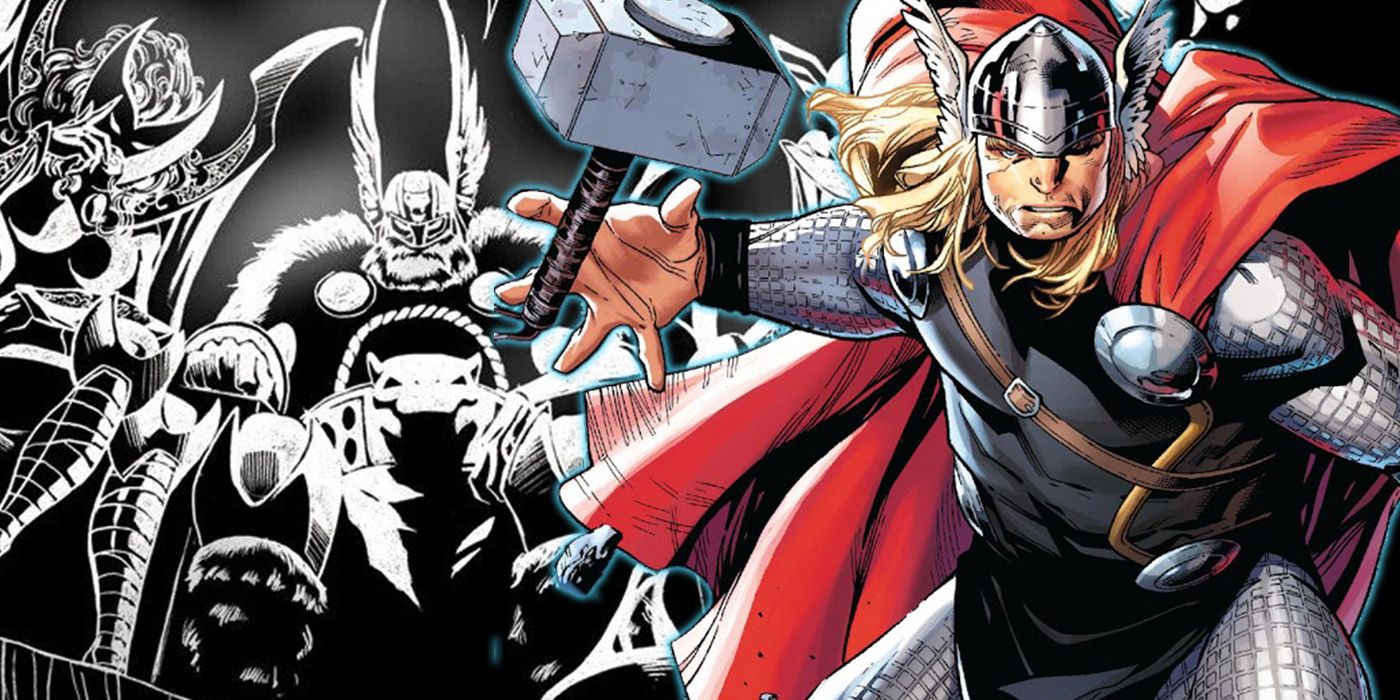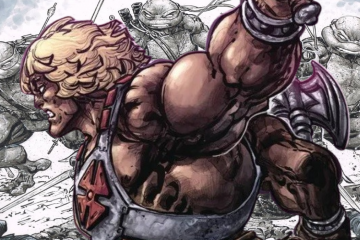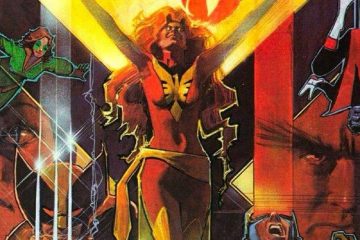In more than 70 years on the comic book page, Thor Odinson has gone up against some of the biggest, most powerful threats of all time. From reality hopping despots to power hungry costumed criminals, it seems as if there is no brand of villain that Thor hasn’t come into conflict with. Unfortunately, that doesn’t mean he has taken on everything the Marvel Universe has to offer, and if he isn’t careful, the Utgard gods might just be the last he ever sees.As an army of Frost Giants march their way across the fields of Aesir in the pages of Immortal Thor #1 (by Al Ewing, Martín Cóccolo, Matthew Wilson, and VC’s Joe Sabino), the titular hero makes aa fast entrance to put a stop to their attempted invasion. While Thor is ultimately successful, he can’t help but take notice of something said by the Frost Giant leader, Skrymir, who claims he took the name of Utgard-Loki. Considering Utgard is the capitol of the Frost Giant’s native Jotunheim, this isn’t all that surprising on the surface, but digging deeper into the past reveals another Utgard, and the sudden arrival of its own brand of gods proves just how small even the current All-Father truly is.Better known as the Land-of-True-Things, Marvel’s other Utgard exists outside the Ten Realms of the primary Marvel Universe, not to mention outside all other known corners of any version of reality whatsoever. When this realm was introduced in the pages of 1985’s Alpha Flight #1 (by Chris Claremont and Paul Smith), it was where Loki went to beseech the higher pantheon known as Those Who Sit Above in Shadow for their aid. Things didn’t go particularly well in that regard for Loki, nor have they for anyone else who has made the trek to Utgard, save for Thor himself when he made the journey to seemingly end the lives of its ominous rulers.RELATED: Marvel Writers Reveal More About Thor Quest: Hammers of the GodsRELATED: Marvel’s Trinity Isn’t Who You Think It Is
In more than 70 years on the comic book page, Thor Odinson has gone up against some of the biggest, most powerful threats of all time. From reality hopping despots to power hungry costumed criminals, it seems as if there is no brand of villain that Thor hasn’t come into conflict with. Unfortunately, that doesn’t mean he has taken on everything the Marvel Universe has to offer, and if he isn’t careful, the Utgard gods might just be the last he ever sees.
As an army of Frost Giants march their way across the fields of Aesir in the pages of Immortal Thor #1 (by Al Ewing, Martín Cóccolo, Matthew Wilson, and VC’s Joe Sabino), the titular hero makes aa fast entrance to put a stop to their attempted invasion. While Thor is ultimately successful, he can’t help but take notice of something said by the Frost Giant leader, Skrymir, who claims he took the name of Utgard-Loki. Considering Utgard is the capitol of the Frost Giant’s native Jotunheim, this isn’t all that surprising on the surface, but digging deeper into the past reveals another Utgard, and the sudden arrival of its own brand of gods proves just how small even the current All-Father truly is.
Better known as the Land-of-True-Things, Marvel’s other Utgard exists outside the Ten Realms of the primary Marvel Universe, not to mention outside all other known corners of any version of reality whatsoever. When this realm was introduced in the pages of 1985’s Alpha Flight #1 (by Chris Claremont and Paul Smith), it was where Loki went to beseech the higher pantheon known as Those Who Sit Above in Shadow for their aid. Things didn’t go particularly well in that regard for Loki, nor have they for anyone else who has made the trek to Utgard, save for Thor himself when he made the journey to seemingly end the lives of its ominous rulers.
#Immortal #Thor #Marvels #Utgard #Gods
Note:- (Not all news on the site expresses the point of view of the site, but we transmit this news automatically and translate it through programmatic technology on the site and not from a human editor. The content is auto-generated from a syndicated feed.))



